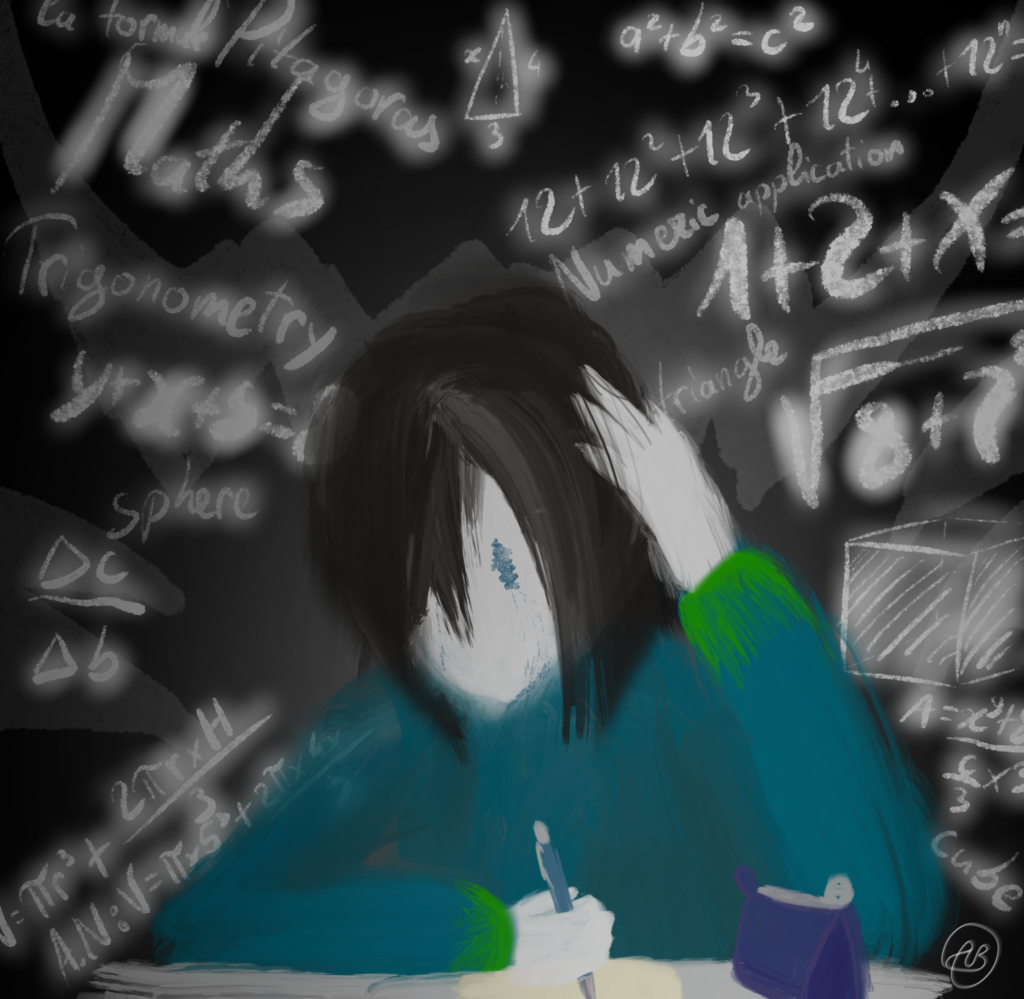By Julia Dec
Edited by Aimée Dhonte
Math. For some, it’s a blessing – eager numbers jumping up and down in ecstasy, counting down the seconds until pen clashes with paper. However, for others, math is a curse – livid numbers screaming at you fiercely, sweat beginning to form in your tightly clenched palms and butterflies – no, moths – flapping their wings in your stomach, and your heart beats faster, and no matter how hard you try, you just can’t seem to concentrate on those Xs and Ys, and you wonder why this is happening to you, this is a test, and you studied, but all the information has suddenly vanished from your brain, and you’re lost, and you’re dumbfounded at how this could possibly be, and you’re hit with a question which makes you forget all other questions – what am I feeling?
Math anxiety, also known as math phobia, is defined as a lingering feeling of nervousness, tension, and apprehension which interferes with mathematical performance and ability. Mark H. Ashcraft, an academic with a PhD in cognitive psychology suggests that highly anxious math students will avoid situations in which they have to perform mathematical tasks – which is futile, as the avoidance of mathematics results in less competency, exposure, and practice, which increases the student’s distress.
The apprehension and fear surrounding math might be the reason some are performing poorly in the subject. Poor math performance might also be caused by the dread of an upcoming math test. As mentioned earlier, full body sweat, a lack of concentration, etc. shift your focus from what you’re supposed to be focused on.

Working memory, a cognitive resource, is decreased when faced with math anxiety. Working memory helps you organize the necessary information needed to stay on task. The over-bearing thought of failure combats working memory, leaving only a small reserve for combatting the math itself – that’s why some struggle when faced with simple math questions, such as multiplication. Sometimes, my math teacher finds humour in silly mistakes made by students during math tests – such as confusing the addition symbol with the multiplication symbol. This may simply be explained by distraction, or, in some instances, math anxiety.
But what causes math anxiety? Although academic distress is not limited to math, it is undoubtedly more common.
Researchers suggest that negative exposure to math from a young age results in a negative projection or overview of the subject in later years. If a parent or teacher embodies math as complicated and challenging, it is no surprise when a child adopts this susceptible mentality. Pressure from teachers and guardians to get things done right fast also has an impact on the child’s mentality in their later years. Negativity leaves scars of discouragement, self-doubt, and underestimation in mathematics.
So, what can you do to minimize the effects of math anxiety?
Meditation and deep breathing slow your heartbeat and calm you down overtime when enduring a math anxiety panic attack. A stroll outside supports the relief of muscle tension, preventing the growth of angst. Or, next time you try studying for your math test, make it a playful and enjoyable experience – scrap those black and white exercises written in tiny font, and feel free to adorn them with colour. Pull out your fluorescent highlighters, and make sure to reward yourself with a piece of cake – which math will soon become.
